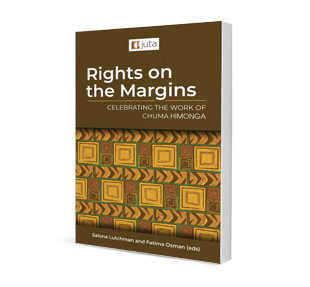Highlighting the higher courts’ obligation to protect vulnerable groups when magistrates fail to conduct the competency test properly

Highlighting the higher courts’ obligation to protect vulnerable groups when magistrates fail to conduct the competency test properly
Author Nondumiso Phenyane
ISSN: 1996-2088
Affiliations: B Soc Sci LLB LLM (UCT), Lecturer, Department of Public Law, Stellenbosch University
Source: Acta Juridica, 2023, p. 77 – 98
https://doi.org/10.47348/ACTA/2023/a4
Abstract
This article uses a series of judgments to highlight that the review or appeal courts’ strict and formalistic application of the competency test and s 164(1) of the Criminal Procedure Act 51 of 1977 has been as detrimental to the rights and interests of vulnerable complainants as the contested rules themselves. The article examines matters where review or appeal courts set aside rape convictions because magistrates failed to conduct the competency test properly. It argues that, while the courts could not avoid setting aside the wrongful convictions, this should not have led to a compromise of vulnerable complainants’ right to protection. In addition to setting the convictions aside, the higher courts should have adopted an approach that helped to mitigate the risks faced by the complainants. Therefore, the article suggests that higher courts which are called upon to decide such matters should use the following approach in the future. First, they should use the results of the competency test as an item of evidence and should evaluate the reliability of the complainants’ evidence only at the end of the trial. Where a matter goes on review or appeal because a magistrate failed to conduct the competency test entirely or adequately, the higher courts should evaluate the complainant’s testimony before deciding whether to exclude it. In instances where there is a possibility that the complainant’s testimony is reliable, the higher courts should remit the matter to the magistrate to address the procedural error. However, in instances where the complainant’s evidence is unreliable, and remittal is not possible, the courts should set the conviction aside and assign a social worker to oversee the complainant’s protection after the release of the accused. Setswana: Athikele eno e dirisa metseletsele ya dikatlholo go bontsha gore dikgotlatshekelo tse di tlhatlhobang kgotsa tsa boikuelo di dirisa teko ya bokgoni ka tsela e e gagametseng le s 164(1) ya Molao wa Tsamaiso ya Bosenyi wa bo51 wa 1977 o nnile kotsi go ditshwanelo le dikgatlhego tsa bangongoregi ba ba sa sireletsegang fela jaaka melawana e e ganetsanang ka boyona. Athikele eno e tlhatlhoba dintlha tseo mo go tsona dikgotlatshekelo tse di tlhatlhobang kgotsa tsa boikuelo di beelang kwa thoko dikatlholo tsa petelelo ka ntlha ya gore magiseterata o reteletswe ke go dira teko ya bokgoni ka tsela e e nepagetseng. E bolela gore, le fa dikgotlatshekelo di ka se kgone go tila go beela kwa thoko dikatlholo tse di fosagetseng, seno se ne se sa tshwanela go lebisa go tshwaelo ya tshwanelo ya tshireletso ya bangongoregi ba ba sa sireletsegang. Mo godimo ga go beela kwa thoko dikatlholo, dikgotlatshekelo tse di kwa godimo di ne di tshwanetse go dirisa mokgwa o o thusitseng go fokotsa dikotsi tse bangongoregi ba neng ba lebane natso. Ka jalo, athikele eno e tshwaela gore dikgotlatshekelo tse di kwa godimo tseo di tshwanetseng go atlhola merero e e jalo di tshwanetse go dirisa mokgwa o o latelang mo isagweng. Sa ntlha, di tshwanetse go dirisa dipholo tsa teko ya bokgoni jaaka bopaki e bile di tshwanetse go sekaseka boikanyego jwa bopaki jwa bangongoregi fela kwa bokhutlong jwa tsheko. Fao morero o sekasekiwang gape kgotsa o ikuelwa ka gonne magiseterata a reteletswe ke go dira teko ya bokgoni ka botlalo kgotsa ka tsela e e tshwanetseng, dikgotlatshekelo tse di kwa godimo di tshwanetse go sekaseka bopaki jwa mongongoregi pele di swetsa gore di tla bo gana. Mo makgetlong a go nang le kgonagalo ya gore bopaki jwa mongongoregi bo a ikanyega, dikgotlatshekelo tse di kwa godimo di tshwanetse go busetsa morero go magiseterata go bo rarabolola. Le fa go le jalo, mo makgetlong a mo go ona bopaki jwa mongongoregi bo sa ikanyegeng, mme go ka se kgonege gore a busediwe kgolegelong, dikgotlatshekelo di tshwanetse go beela thoko katlholo le go neela modirediloago tiro ya go okamela tshireletso ya mongongoregi morago ga go gololwa ga molatofadiwa.